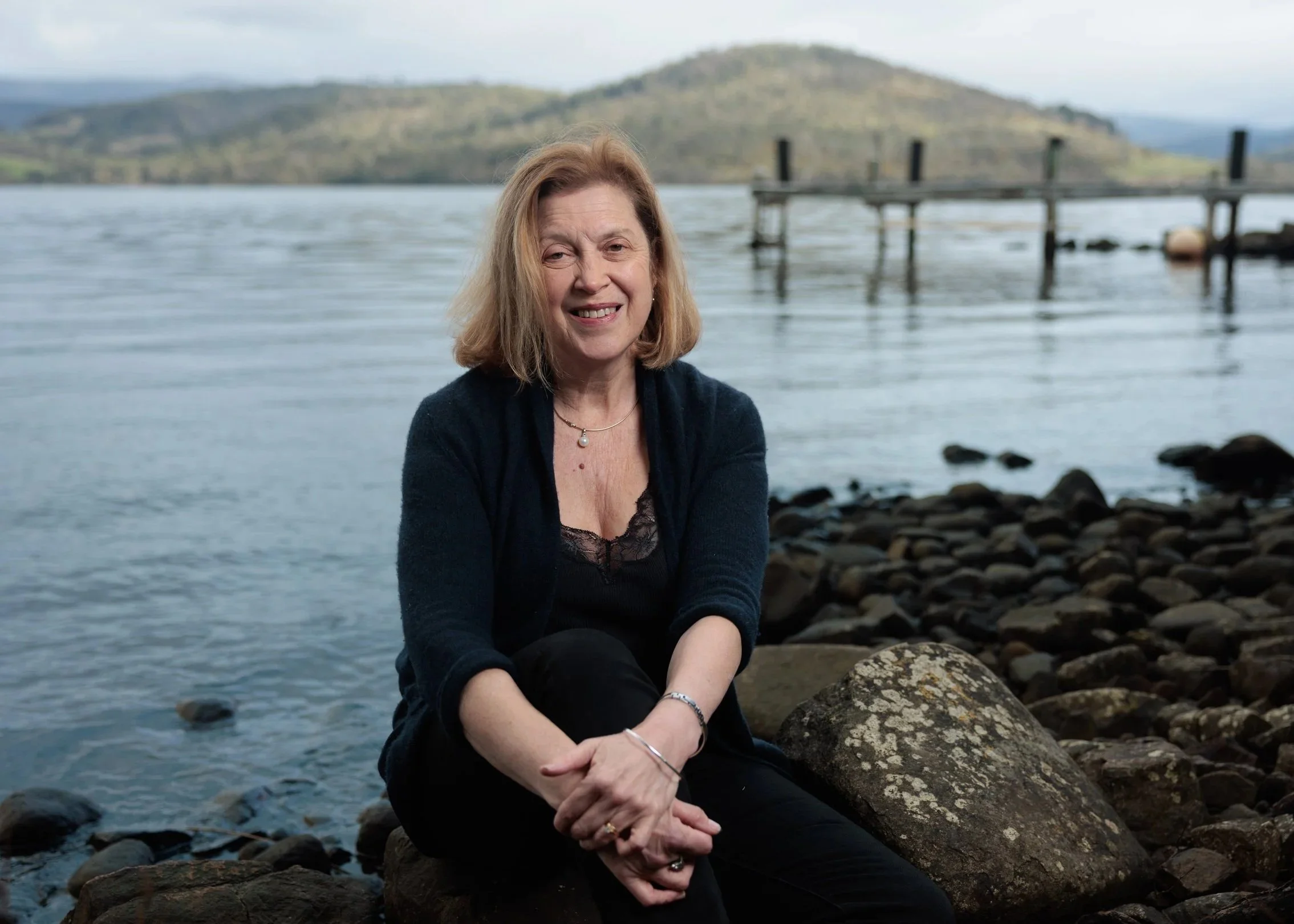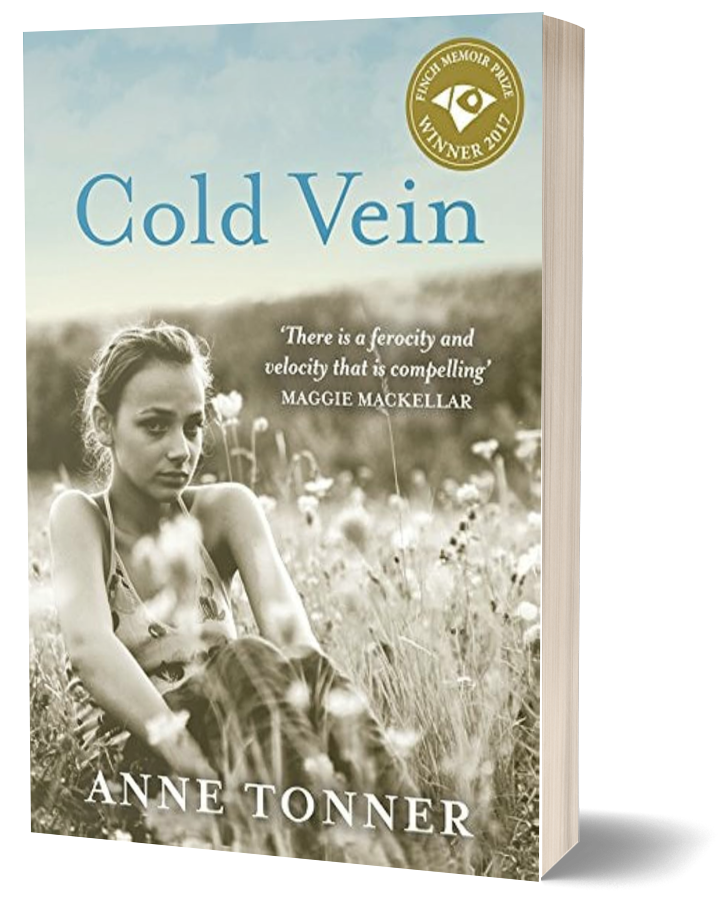Photography credit - Peter Mathew
About Anne
Anne Tonner is a writer based in Tasmania, Australia. Her first book, Cold Vein, was awarded The Finch Memoir Prize.
Anne worked for many years as a human rights lawyer in Sydney. She practised in health settings, the not-for-profit sector, clinical education and private practice. Her work focussed on trying to improve access to justice and legal outcomes for people affected by trauma. Many of her clients were refugees, asylum seekers and survivors of institutional abuse.
In her writing, Anne explores the impact of trauma - how it “undoes” us, and how we manage to rebuild ourselves. She is passionate about the craft of life-writing and the power of being able to tell our own stories in a way that is both healing to the writer, and helpful to others.
“Telling our true stories helps us to process and understand our own trauma. In this way, we can help others understand.”
Anne was born and raised in Leura, in the Blue Mountains of NSW. She now lives in Southern Tasmania, on the banks of the Huon River.

A little more about Anne
I’m fascinated by the stories of real people and how they overcome adversity and challenges in their lives. I believe that these stories, when shared with others, have the power to start conversations about difficult topics, break down barriers and ultimately drive change.
My own challenge came in 2003, when my teenage daughter was diagnosed with anorexia. The next four years were a very dark time, as we struggled to make sense of this insidious disease and to find a treatment that worked.
Writing was a source of solace in those dark days. Initially, it was just diary entries about the daily hell that was anorexia. Later, as my daughter began to recover, I decided to write the story of our experience, and those diary entries became the basis for my memoir, Cold Vein.
I wrote Cold Vein partly as a way of processing my own trauma but also to shed light on the seriousness of anorexia and its impact on sufferers and those who love them.
I was thrilled when Cold Vein won the 2017 Finch Memoir Prize. I was even more thrilled when readers told me that my book had helped them to understand anorexia better, or that it helped them to find hope in their own dark times.
Cold Vein
Beautifully written and ultimately uplifting…
For the last three years, my daughter has been slowly dying. Although she is sixteen, she weighs as much as an eight-year-old. We have tried everything the medical system has to offer – psychologists, psychiatrists, family therapists, dieticians, drugs … but nothing has worked. And now here we are, she and I, flying to the other side of the world in a last ditch effort to save her.
Anorexia is a difficult thing to get people to understand. Usually, when I try to explain it, they will look at me incredulously. Sometimes they will come right out and say what I know they are thinking: Why can’t you just get her to eat?”
Beautifully written and ultimately uplifting, this story sheds light on one of the most insidious and dangerous mental conditions afflicting modern society today.
WINNER OF THE FINCH MEMOIR PRIZE 2017
This is an amazing book. I was absolutely absorbed by it. The honesty of it - it’s so compelling, so raw…..It’s a brilliant book, not just because of the story but because of the writing.
The writing is magnificent.
Wendy Harmer, Mornings, ABC Radio
What I’m writing…
My memoir in progress is about the complex, often unspoken grief that can follow the death of an “Ex”. I began writing it after finding out about the sudden death of my first love.
Things ended badly between us when we were both in our early twenties. My parting words (spat contemptuously at him) were: “I never want to see you again”. Yet the news of his death set off an avalanche of memories and emotions. Suddenly, the happy, successful life I’d built up for myself over the last 40 years seemed meaningless - because now, I never would see him again.
To understand this, I turned to writing. I dug out my old diaries and forced myself to walk through the corridors of the past with my younger self. At times this journey was excruciatingly painful, but along the way it also delivered moments of unexpected joy and startling revelations about what love is – and what it is not.
Set in Katoomba and Sydney University in the late 1970s, this is a story about first love and loss, leaving home and learning to trust yourself in the world when those you trust let you down. Ultimately, it’s a story about growing up.
It’s also a reflection on the capacity of grief to unhinge us. How is it possible to have such intense feelings of loss for a person we thought we’d moved on from decades ago? What do we do with these feelings? Is there a place in the world for this “strange, guilty grief?”



